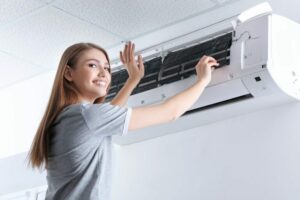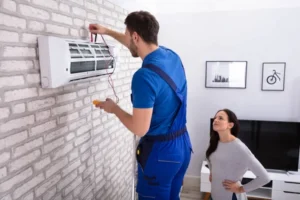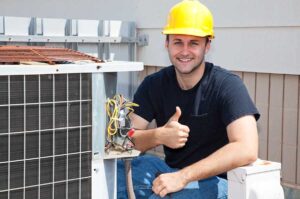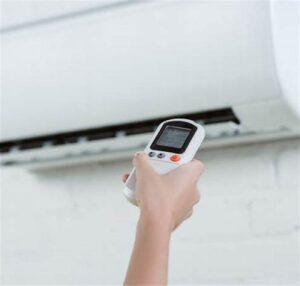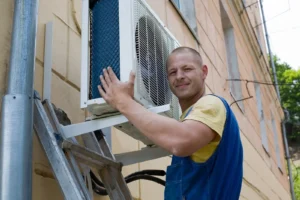
Your Port St Lucie AC Repair, Maintenance & HVAC Company Since 2005
Since 2005, Kyzar AC Repair Port St Lucie has positioned itself as the premier choice for air conditioning solutions in Port St Lucie. Being a family-owned and operated venture, our core values lie in delivering top-notch workmanship, competitive prices, and swift response times. Our unwavering commitment to integrity and distinction has cemented our reputation as the leading AC repair, maintenance and installation provider in the region.
Request ServiceSkilled HVAC Repair & Air Conditioning Service, Guaranteed
HVAC Installer
Our HVAC installers specialize in precise installation to ensure perfect climate regulation. Trust us to deliver comfort and efficiency in every project.
AC Repair
Our AC repair experts are here to restore your system’s functionality. We offer 24/7 emergency services to keep you comfortable.
AC Maintenance
You can trust our reliable AC maintenance solutions to keep your HVAC unit operating seamlessly.
HVAC Company
With expertise in all-encompassing HVAC services, we deliver superior climate control and energy efficiency for both residential and commercial properties.
New AC System Replacement
Our skilled team provides top-notch New AC system replacements to maintain a cool and energy-efficient home throughout the year. We guarantee a smooth installation for enduring comfort.
Air Conditioning Service
Our comprehensive AC services cover installation, maintenance, replacement, and repairs to keep your system performing optimally.




Why Choose Us for AC Unit Repair & Replacement?

During our consultation phase, we engage in extensive discussions to gain insights into your particular needs and preferences, ensuring a bespoke and successful HVAC solution.

Diligence is essential in our preparatory phase, as we map out the intricacies of your HVAC system, guaranteeing a seamless and efficient installation journey.

With an emphasis on skill, our installation process breathes life into your HVAC vision, harmonizing adept craftsmanship with innovative technology to deliver unparalleled performance and comfort.

Beyond the initial setup, we remain devoted to your satisfaction by offering comprehensive maintenance services to uphold the efficiency of your HVAC system, ensuring prolonged comfort and peace of mind.

Our HVAC Company Serves Port St Lucie & Nearby Areas
When your air conditioning unit needs servicing in Port St Lucie, trust Kyzar Air Conditioning. As a group of local HVAC contractors, we offer our services in various communities.




Upgrading your HVAC system is a major investment for homeowners in Port St Lucie. Modern systems are more energy-efficient, reliable, and capable of providing consistent comfort throughout the year. However, a successful upgrade requires preparation. Taking the right steps before installation helps ensure the process goes smoothly, reduces disruptions, and allows your new system to […]

Indoor air quality has become a growing concern for homeowners in Port St Lucie. With warm temperatures, high humidity, and long cooling seasons, HVAC systems in this area run frequently and move large volumes of air every day. As a result, many homeowners are looking beyond basic temperature control and asking how to improve the […]

A reliable HVAC system is essential for maintaining comfort in Florida homes, especially in Port St Lucie where high temperatures and humidity are common. Homeowners often take their heating and cooling systems for granted until a problem arises. Identifying warning signs early can prevent minor issues from turning into costly repairs or system failures. Being […]
Port St Lucie Air Conditioning & HVAC Guide
Heating, Ventilation, and Air Conditioning (HVAC) systems are essential components of modern homes and buildings, providing comfort and maintaining indoor air quality throughout the year. Whether you’re considering installing a new HVAC system, need AC maintenance to keep your current system running smoothly, or are facing issues that require AC repair, having a basic understanding of HVAC systems can help you make informed decisions and ensure optimal performance.
If you’re a homeowner looking to improve comfort and efficiency or a business owner seeking reliable commercial HVAC solutions, this guide serves as a valuable resource for understanding the fundamentals of HVAC systems and addressing common concerns. Let’s delve into the world of HVAC and empower you to make informed choices for your comfort and well-being.
Air Conditioning System Installation
Before installing a new HVAC system, consider factors such as the size of your home, your budget, energy efficiency ratings, the climate in your region, available space for installation, and whether you need additional features like zoning or humidity control. Many homes in Port St. Lucie benefit from ductless systems for more flexible installations.
Home Size
Assess the square footage of your home to determine the appropriate capacity needed for efficient heating and cooling.
Budget Considerations
Evaluate your financial resources to establish a feasible budget for purchasing and installing the HVAC system. You may want to compare the benefits of AC installation versus AC unit system replacement to find the best solution.
Energy Efficiency Ratings
Research energy-efficient options and review ratings such as SEER (Seasonal Energy Efficiency Ratio) and HSPF (Heating Seasonal Performance Factor) to minimize energy consumption and long-term costs.
Climate Considerations
Analyze the climate conditions in your region to select an HVAC system tailored to the specific heating and cooling requirements, considering factors like humidity levels and seasonal temperature fluctuations.
Available Space for Installation
Determine the available space for installing the HVAC system, including indoor and outdoor units, to ensure proper placement and functionality.
Additional Features
Consider additional features such as zoning capabilities for personalized temperature control in different areas of your home and humidity control options for enhanced comfort and indoor air quality.
Air Conditioning Repair - Signs It's Time
Signs that your HVAC system needs repair include strange noises, uneven heating or cooling, increased energy bills, frequent cycling on and off, unpleasant odors, and visible leaks or moisture around the unit.
Strange Noises
Pay attention to any unusual sounds emanating from your HVAC system, such as banging, rattling, or squealing, which may indicate mechanical issues or worn-out components.
Uneven Heating or Cooling
Notice if certain areas of your home are consistently warmer or cooler than others, indicating potential airflow problems, duct issues, or malfunctioning components within the system.
Increased Energy Bills
Monitor your energy bills for sudden spikes in consumption, as inefficient or malfunctioning HVAC systems often require more energy to maintain desired temperatures.
Frequent Cycling On and Off
Observe if your HVAC system cycles on and off more frequently than usual, which can signify issues with the thermostat, airflow, or system controls, leading to reduced efficiency and increased wear and tear.
Unpleasant Odors
Take note of any foul or musty odors emanating from the vents, which may indicate mold growth, accumulated debris, or issues with the internal components of the HVAC system.
Visible Leaks or Moisture
Inspect the area around your HVAC unit for signs of water leaks, condensation, or moisture buildup, as these issues can indicate problems with the refrigerant lines, drainage system, or internal components requiring immediate attention and repair.
AC Maintenance - Important Considerations
Can I perform maintenance on my HVAC system myself?
While there are some maintenance tasks you can perform yourself, such as changing air filters and cleaning vents, it’s best to leave more complex tasks, such as inspecting electrical components or refrigerant levels, to qualified professionals to ensure safety and proper functioning of your system.
How often should I schedule maintenance for my HVAC system?
It’s recommended to schedule maintenance for your HVAC system at least once a year, ideally before the start of the heating or cooling season. Regular maintenance helps improve efficiency, prevent breakdowns, and extend the lifespan of your system.
What are some common reasons for breakdowns?
Common reasons for HVAC system breakdowns include lack of maintenance, dirty air filters, electrical component failure, refrigerant leaks, thermostat issues, frozen coils, and normal wear and tear over time. Regular maintenance and prompt repairs can help prevent breakdowns and prolong the lifespan of your system.
What are some ways to improve the efficiency of my HVAC system?
To improve the efficiency of your HVAC system, you can seal air leaks, upgrade insulation, install a programmable thermostat, schedule regular maintenance, clean or replace air filters regularly, and consider upgrading to a more energy-efficient system if your current one is outdated.
What should I do if my HVAC system is leaking water?
If your HVAC system is leaking water, first turn it off to prevent further damage. Then check for clogged condensate lines, dirty filters, or a malfunctioning pump. If needed, contact a professional for same-day AC repair.
What should I do if my system is making strange noises?
Strange noises coming from your HVAC system could indicate various issues, such as loose components, worn-out belts, or motor problems. It’s best to turn off the system and contact a professional HVAC technician to diagnose and repair the problem to prevent further damage.
How can I troubleshoot a malfunctioning thermostat?
If your thermostat is malfunctioning, first check the batteries and replace them if necessary. Then, ensure the thermostat is set to the correct mode (heating or cooling) and temperature. If the problem persists, check for loose or corroded wires, dust, or debris around the thermostat, and consider recalibrating or replacing the thermostat if needed.
Is it normal for my system to produce odors?
While some odors from your HVAC system are normal, such as a musty smell when you first turn on the heat in the winter, persistent or foul odors could indicate issues such as mold growth, burning wires, or gas leaks. If you notice unusual odors, it’s best to turn off the system and contact a professional HVAC technician for inspection and repair.
What should I do if my HVAC system is not turning on?
If your HVAC system is not turning on, first check the thermostat settings and batteries, then inspect the circuit breaker or fuse box to ensure power is reaching the unit. If everything appears to be in order and the system still won’t turn on, it could indicate issues with the thermostat, wiring, or components within the HVAC system, requiring professional diagnosis and repair.
Is it worth investing in a maintenance plan?
Investing in a maintenance plan for your HVAC system can be worth it, as it often includes regular tune-ups, priority service, discounts on repairs, and extended warranties. Regular maintenance helps prevent breakdowns, improve efficiency, and prolong the lifespan of your system, potentially saving you money in the long run.
Air Conditioning System & Indoor Air Quality
To improve indoor air quality, you can invest in air purifiers, regularly clean and vacuum your home, maintain proper ventilation, use natural cleaning products, change air filters regularly, and consider installing a whole-house air filtration system as part of your HVAC system.
Air Purifiers
Consider purchasing air purifiers equipped with HEPA filters or UV-C technology to effectively remove airborne contaminants, allergens, and pollutants from indoor spaces.
Regular Cleaning and Vacuuming
Implement a consistent cleaning schedule to eliminate dust, pet dander, and other particles from surfaces and carpets, reducing the accumulation of allergens and improving air quality.
Proper Ventilation
Ensure adequate ventilation throughout your home by opening windows and doors when weather permits, using exhaust fans in kitchens and bathrooms, and promoting airflow to prevent stagnation and buildup of indoor pollutants.
Use of Natural Cleaning Products
Opt for natural cleaning products that contain fewer harsh chemicals and volatile organic compounds (VOCs), minimizing the release of harmful substances into the indoor air during cleaning activities.
Regular Air Filter Replacement
Maintain your HVAC system by regularly replacing air filters according to manufacturer recommendations to prevent the buildup of dust, debris, and contaminants, ensuring optimal airflow and indoor air quality.
Installation of Whole-House Air Filtration Systems
Consider integrating a whole-house air filtration system into your HVAC system to capture and filter contaminants on a larger scale, providing comprehensive purification and improved air quality throughout your home.
AC Unit Not Working - What to Do
If your HVAC system is not heating or cooling properly, first check the air filters and replace them if dirty. Then, check for blocked vents, leaks in ductwork, and thermostat settings. If the problem persists, it could indicate issues with the compressor, refrigerant levels, or electrical components, requiring professional diagnosis and repair.
Check Air Filters
Inspect the air filters for dirt and debris buildup, and replace them if dirty or clogged to ensure proper airflow and system efficiency.
Unblock Vents
Examine all vents throughout your home to ensure they are not obstructed by furniture, curtains, or other objects, hindering the distribution of heated or cooled air.
Inspect Ductwork for Leaks
Check for leaks or damage in the ductwork, particularly in areas such as attics, basements, or crawl spaces, as leaks can lead to loss of air pressure and reduced heating or cooling effectiveness.
Verify Thermostat Settings
Review the thermostat settings to ensure they are configured correctly for heating or cooling mode, and check the battery if applicable, to rule out any issues with temperature regulation.
Professional Diagnosis
If the problem persists despite these troubleshooting steps, it may indicate underlying issues with critical components such as the compressor, refrigerant levels, or electrical connections, necessitating professional diagnosis and repair by qualified HVAC technicians.
HVAC System - Which One Is Right for You?
The best type of HVAC system for your home depends on factors such as the size and layout of your home, your budget, energy efficiency goals, and local climate. Common options include split systems, packaged units, ductless mini-split systems, and geothermal heat pumps. Consulting with a qualified HVAC contractor can help you determine the best option for your specific needs.
Consider Home Size and Layout
Evaluate the square footage and layout of your home to determine the most suitable HVAC system size and configuration for efficient heating and cooling throughout all living spaces.
Assess Budget Constraints
Take into account your budgetary limitations and long-term financial goals when selecting an HVAC system, considering not only upfront costs but also ongoing maintenance and operational expenses.
Energy Efficiency Objectives
Prioritize energy efficiency goals to minimize utility bills and reduce environmental impact, opting for HVAC systems with high SEER (Seasonal Energy Efficiency Ratio) and HSPF (Heating Seasonal Performance Factor) ratings.
Local Climate Considerations
Factor in the climate conditions prevalent in your region, including temperature extremes, humidity levels, and seasonal variations, to choose an HVAC system capable of providing optimal comfort and performance year-round.
Types of HVAC Systems
- Split Systems: Traditional split systems consist of indoor and outdoor units connected by refrigerant lines, offering versatile heating and cooling options suitable for most homes.
- Packaged Units: Packaged HVAC units combine heating and cooling components into a single outdoor unit, ideal for homes with limited indoor space or where ductwork is impractical.
- Ductless Mini-Split Systems: Ductless mini-split systems provide individualized heating and cooling to specific zones or rooms without the need for ductwork, offering flexibility and energy efficiency benefits.
- Geothermal Heat Pumps: Geothermal heat pumps utilize underground heat exchange loops to provide efficient heating and cooling, offering significant energy savings and environmental advantages in suitable geographic locations.
Contact Us in Port St Lucie for AC System Repair, Replacement & More
Seek guidance from a qualified HVAC contractor who can assess your home’s specific requirements and recommend the most suitable HVAC system based on factors such as size, budget, energy efficiency goals, and local climate conditions.
Navigating the realm of HVAC systems can be complex, but armed with knowledge and guidance, you can confidently understand installation, maintenance, and repair tasks. Whether you’re seeking advice on selecting the right system for your space, maintaining optimal performance, or addressing unexpected breakdowns, Kyzar AC is here to help ensure your system runs smoothly 24/7.
Port St Lucie AC Repair & HVAC Company
Rely on us to elevate your indoor environment into an oasis of ideal climate management through our skilled HVAC solutions.
Free System Replacement Estimates


